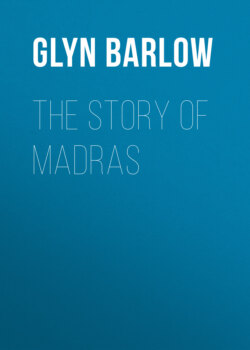Читать книгу The Story of Madras - Glyn Barlow - Страница 3
На сайте Литреса книга снята с продажи.
PREFACE
ОглавлениеTable of Contents
This little book is not a "History of Madras," although it contains a good deal of Madras history; and it is not a "Guide to Madras," although it gives accounts of some of the principal buildings in the city. The book will have fulfilled its purpose if it helps the reader to realize that the City of Madras is a particularly interesting corner of the world. This fact is often forgotten; and even many of the people who live in Madras itself, and who are aware that Madras has played an important part in the making of India's history, are strangely uninterested in its historic remains. They are eloquent perhaps in denouncing the heat of Madras and its mosquitoes and the iniquities of its Cooum river; but they have never a word to say on its enchanting memorials of the past. Madras has memorials indeed. Madras is an historical museum, where the sightseer may spend many and many an hour—in street and in building—studying old-world exhibits, and living for the while in the fascinating past. Madras is not an ancient city; its foundation is not ascribed to some mythic king who ruled in mythic times; it has no hoary ruins, too old to be historic and too legendary to be inspiring. But Madras is old enough for its records to be romantic, and at the same time is young enough for its earliest accounts of itself to be—not unsatisfying fables, but interesting fact. The story of Madras fills an absorbing page of history, and the sights of Madras are well worthy of sympathetic interest—especially on the part of those whose lines of life are cast in the historic city itself or within the historic presidency of which it is the capital.
In the following pages certain places and events have been briefly described more than once with different details; any such repetitions are due to the fact that the Story of Madras has been told in a series of vignettes, appertaining to particular buildings or particular conditions, and each vignette had to be complete in itself. It is hoped that such repetitions will be of familiar interest, rather than tedious.
In respect of the facts that are recorded, apart from general history, I am indebted principally to the valuable Records of Fort St. George, which the Madras Government have been publishing, volume by volume, during several years, and which I have studied with interest since the first volume appeared. Of other works that I have consulted, I must specially mention Colonel Love's "Vestiges of Madras," which is a very mine of information.
G.B.
Madras, 1921.
